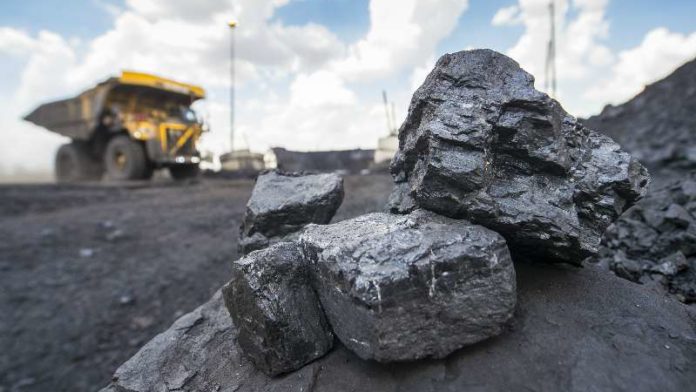
EXXARO Resources said last year it will press on with plans to diversify production into “green metals”. In the case of the JSE coal miner, read manganese — which is used to make steel and also has a battery application in electric vehicles.
It’s questionable, though, if such a deal can happen while its CEO Nombasa Tsengwa remains suspended following damaging reports regarding company culture last year.
First, the number of senior resignations preceding Tsengwa’s suspension, including the firm’s head of coal, suggests Exxaro must deal with important internal matters before looking outward.
A report in Business Times accused Tsengwa of creating “a culture of fear” while former employees told the paper there was also frustration with delivery of the diversification strategy. Exxaro’s board has enlisted law firm ENS to conduct a review.
The outcome could raise uncomfortable questions about the organisation.
Second, the diversification deal is not entirely within the company’s control, according to its chief growth officer, Richard Lilleike, a former banker with Standard Chartered.
Asked at a company presentation, shortly before Tsengwa’s suspension was announced, when he expected to conclude the long-standing deal, he replied: “We are not always in control of the timelines.”
The speculation is that Exxaro has bid for Anglo American’s 40% stake in the Samancor joint venture in the Northern Cape, for manganese ore assets shared with South32, the Perth-headquartered miner. South32 has a pre-emptive option over Anglo’s stake, but its reluctance to sink new capital into South Africa when it has project capex in North America suggests it won’t pay the premium Anglo will demand.
And, to be sure, Anglo will drive ambitiously for a good price as it accelerates its own portfolio restructuring. Anglo got an excellent price for its metallurgical coal mines in Australia that, pending fulfilment of certain conditions, could land it as much as $4bn — about $1bn more than analysts expected.
What is certain, though, is that the diversification strategy has taken far longer than it should, an issue that must land squarely at the board’s feet.
Peter Major, a director of Modern Corporate Solutions, says Exxaro is a company hamstrung by bureaucracy. There are 16 people on the board, six more than at Anglo, a diversified miner with a R713bn market capitalisation against Exxaro’s R53.5bn. “Boards are sometimes not conducive to quick decision-making, especially one as big as the Exxaro board. They find more reasons not to do a deal than do it,” says Major.
At first, Exxaro said it was chasing metals such as copper and vanadium globally. It then widened the net to anything that could be got for value. Finally, it turned its focus to South Africa and manganese specifically, presumably because so little else was on the table — especially given the limits of its balance sheet against those of the larger companies vying for the same metals. In November last year, Exxaro lost out on the Khoemacau copper mine in Botswana to China’s MMG, which paid $1.9bn.
Stick to coal?
Another question is: does diversification make sense for Exxaro in any form? Once before, under former CEO Sipho Nkosi, it diversified into iron ore only to write it down several years later. Nkosi’s successor at Exxaro, Mxolisi Mgojo, then announced a strategy to move into water and agribusiness, using the company’s property portfolio. Shares in the company fell swiftly and the project was not really mentioned again.
Even as Exxaro pressed on with its current strategy, analysts were applying a deal discount. Exxaro has amassed a cash pile of R16bn (as of end-October), according to finance director Riaan Koppeschaar, Tsengwa’s stand-in. Hoping Exxaro could spend this shrewdly rather than just paying it out to investors was a risk, they said.
Boards are sometimes not conducive to quick decision-making, especially one as big as the Exxaro board – Peter Major
Exxaro has done well by coal. It is Eskom’s largest coal supplier and has an 8Mt/year exporting capacity in a market that, despite the sceptics, continues to provide decent pricing. In fact, a much-feared contraction in the coal market hasn’t yet materialised. Head of marketing Sakkie Swanepoel said last week that instead of reaching peak coal of one billion tons, this level of demand would persist for a while longer, perhaps until 2030.
As for manganese specifically, adding it to Exxaro’s portfolio doubles up its exposure to Transnet Freight Rail dysfunction. And the manganese market is no dripping roast.
South Africa controls about 80% of world resources but its price is volatile. Look no further than last year. After doubling in price after a cyclone that knocked out production at South32’s Gemco, the price has reverted to mean.
A version of this article was first published in the Financial Mail.











